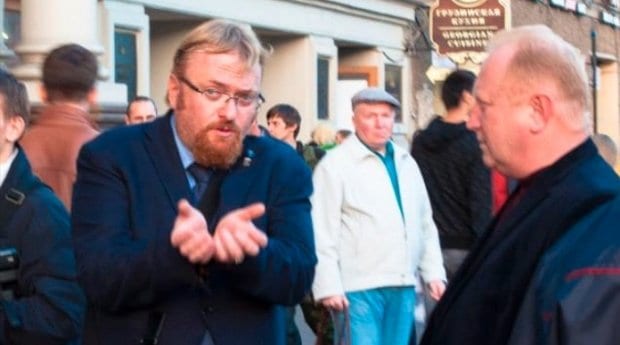Russian LGBT festival QueerFest has come under unprecedented pressure from its opponents, with one organizer alleging that police have been citing threats to public order as a pretext for shutting down events.
QueerFest returned to St Petersburg’s city centre this year after being forced to relocate to the city’s northeastern outskirts last year, when downtown venues declined to host events because of the increased hostility toward LGBT people.
Organizer Polina Andrianova says since the festival began Sept 18, it continues to be “a battleground.” Apart from abrupt event cancellations and police interference, the festival also received a bomb threat and was attacked by anti-gay activists led by St Petersburg legislative assembly member Vitaly Milonov.
“In the six years of organizing the festival, there has never been such a consistent and organized attack on our freedom of assembly and expression,” Andrianova tells Xtra by email.
Mere hours before the QueerFest’s opening ceremonies, she says, the hosting venue called to cancel the event, saying that the entrance archway was structurally unsound and could collapse. But Andrianova notes that other scheduled events at the location were allowed to proceed.
When the festival quickly relocated to another venue, Milonov, who spearheaded St Petersburg’s “gay propaganda” law, showed up in the company of approximately 20 “Orthodox activists,” who allegedly sprayed a green liquid and an unknown gaseous substance on guests.
As QueerFest security guards were blockading the door, they also struggled to pull two foreign guests into the venue. On the other side of the door, anti-gay activists tugged at the guests’ feet to prevent them from entering.
Svetlana Zakharova, PR manager of the Russian LGBT Network, attended the opening ceremonies and was among those who were eventually locked inside the building. She says it was “quite scary.”
She describes Milonov’s behaviour as shocking. “It’s like highly sanctioned violence; it’s not only permitted but it’s, in a way, done by government.”
Zakharova alleges that he was “screaming something like ‘fags’ and ‘AIDS bearers.’”
Approximately 24 complaints were filed with the police, including one from the St Petersburg human rights ombudsman’s office, Andrianova says.
“As a result of hooliganism, citizen’s rights have been grossly violated,” writes Alexander Shishlov, who went to the event after his staff informed him about the attack. “Active participation of the deputy of The Legislative Assembly of St Petersburg in such actions discredits other deputies and damages the image of St Petersburg. I request that you evaluate the actions of the deputy of The Legislative Assembly of St Petersburg, which have led to human rights violations and to implement the measures aimed at ensuring observance of the norms of deputy ethics,” he states.
In the days after the attack on the opening ceremonies, at least two other venues have cancelled events. On Sept 24, police attempted to derail a press conference entitled “Who is shutting down QueerFest?” The Institute of Regional Press, which hosted the conference, resisted efforts by authorities to cancel it, Andrianova says.
In light of the constant disruptions and threats, she says, organizers are no longer publishing festival venues. Instead, it is inviting the public to view the event through an online feed.
QueerFest’s organizers are calling on authorities to investigate the attacks on the event, prosecute offenders and provide adequate protection so that the festival can proceed safely.
“Instead of bringing the perpetrators to justice, the authorities look the other way,” Andrianova charges. “Every means is used to push us into the ghetto, yet the festival is about dialogue and being open in society, and our best defence right now is to stay visible.”


 Why you can trust Xtra
Why you can trust Xtra


